OECD Development Centre
OECD Development Centre |
||
|---|---|---|
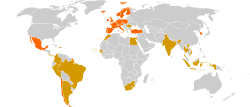 Participating OECD member states Non-OECD member states |
||
| Secretariat | Paris, France | |
| Membership | 42 member states | |
| Leaders | ||
| - | Director | Mario Pezzini[1] |
| Website www.oecd.org/dev |
||
The OECD Development Centre is a part of the OECD, created in October 1963 in response to a request by then U.S. President John F. Kennedy at the Canadian Parliament in Ottawa on 17 May 1961. It was intended as a place to bring the Organisation for Economic Co-operation and Development (OECD) and the developing world together.
The Development Centre is uniquely positioned within the OECD as a producer of policy-oriented analysis on development issues – from global economic interactions to strategies and policies to promote development, from social protection systems to migration – that brings together a wide range of developed, emerging and developing economies to exchange their policy experiences and advance their common ground.
Membership of the Development Centre
The Development Centre is open to OECD and non-OECD countries and consists of 42 members from the Americas, Africa, Asia and Europe. There are 18 non-OECD members including all non-OECD G20 members, except for China, Russia and Saudi Arabia. The European Union and a vast array of international organisations, such as regional development banks and financial institutions, participate as an observer. Such a broad membership is central to achieving the Centre's mission as an independent and inclusive platform for knowledge-sharing among OECD, emerging and developing economies, enabling a rich policy dialogue among its members, on an equal footing.
- Member states[2]
 Argentina
Argentina Austria
Austria.svg.png) Belgium
Belgium Brazil
Brazil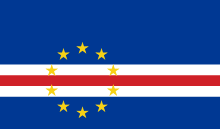 Cape Verde
Cape Verde Chile
Chile Colombia
Colombia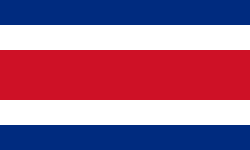 Costa Rica
Costa Rica Czech Republic
Czech Republic Dominican Republic
Dominican Republic Egypt
Egypt Finland
Finland France
France Germany
Germany Iceland
Iceland India
India Indonesia
Indonesia Ireland
Ireland Israel
Israel Italy
Italy South Korea
South Korea Luxembourg
Luxembourg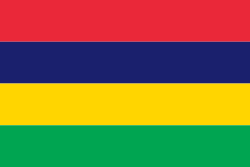 Mauritius
Mauritius Mexico
Mexico Morocco
Morocco Netherlands
Netherlands Norway
Norway Panama
Panama Peru
Peru Poland
Poland Portugal
Portugal Romania
Romania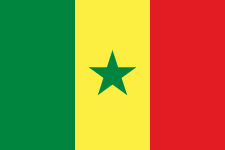 Senegal
Senegal Slovakia
Slovakia South Africa
South Africa Spain
Spain Sweden
Sweden Switzerland
Switzerland Thailand
Thailand Turkey
Turkey United Kingdom
United Kingdom Vietnam
Vietnam
Participating OECD members: Austria, Belgium, Chile, Czech Republic, Finland, France, Germany, Iceland, Ireland, Israel, Italy, Luxembourg, Mexico, The Nederlands, Norway, Poland, Portugal, Slovakia, South Korea, Spain, Sweden, Switzerland, Turkey, and the United Kingdom.
Participating non-OECD members: Argentina, Brazil, Cabo Verde, Colombia, Costa Rica, Dominican Republic, Egypt, India, Indonesia, Mauritius, Morocco, Panama, Peru, Romania, Senegal, South Africa, Thailand, Vietnam.
Non-participating OECD members: Australia, Canada, Denmark, Estonia, Greece, Hungry, Japan, New Zealand, Slovenia, and the United States.
The OECD Development Centre´s activities
For an inclusive membership strategy the Development Centre offers tools for engagement for countries in different regions and stages of development to debate appropriate policy options with development partners and stakeholders, including traditional and new actors from the public and private sector:
Policy dialogue and knowledge-sharing
- The Global Forum on Development (GFD). The GFD (focusing on “Preparing for the Post-2015 World” in 2013, 14 and 15) provides a venue for high-level policy makers and civil society to exchange perspectives, explore challenges, opportunities and learn lessons about current poverty reduction policies and methods for fostering social cohesion and progress.
- Regional International Economic Forums for Africa, Latin America and the Caribbean, and forthcoming for Asia attract participation by governments, international organisations, civil society, foundations, think tanks, the media, corporations and academia.
- As part of the Development Centre’s contribution to the OECD Strategy for Development, the Centre is leading efforts across the OECD Secretariat to establish a multi-year process of knowledge sharing and policy dialogue between OECD and partner countries facing similar development challenges, commencing with the:
- - OECD Network for Policy dialogue on Natural-resource Driven Development, and
- - OECD Network for Policy Dialogue on Global Value Chains (GVC-NET)
- The Development Centre has Networks of key stakeholders engaged in policy dialogue, producing relevant analysis, and sharing experience on policy reform for development. Some of these Networks attract experts as members but also offer opportunities for the Governing Board to participate in open sessions:
- - Network of Multinationals: Emerging markets network (EmNet)
- - Network of Foundations working on development (netFWD)
- - Network of Think Tanks: Development Finance Network (DeFiNe)
- - Network of Heads of Communication and Information in DAC Development Agencies to share good practices and engage in peer learning and on how effectively to raise public awareness and communicate about development cooperation (DevCom).
Cross sectoral analysis
- Multi-dimensional Country Reviews (MDCRs): an innovative tool that contributes to the implementation of the OECD Strategy for Development and directly engages non-Members. Currently, MDCRs of Myanmar, Philippines, and Uruguay are underway.
Global, regional and country analysis
- Annual thematic flagship publication: OECD Perspectives on Global Development
- Regional Economic Outlooks in partnership with international organisations in each region:
- - African Economic Outlook
- - Latin American Economic Outlook
- - Economic Outlook for Southeast Asia, China and India
- Regional/country studies: social cohesion policy reviews, gender, migration, youth inclusion, competitiveness, global value chains, taxation and middle-classes; innovation and territorial development, capital markets, etc.
Statistics and indicators:
- Revenue Statistics: Africa; Latin America and Asia
- The OECD Social Institutions and Gender (SIGI) Index
- Asian Business Cycle Indicators (ABCIs)
- OECD-ASEAN Narrowing Development Gap Indicators (NDGIs)
See also
References
- ↑ www.oecd.org/dev Development Centre—Mario Pezzini
- ↑ www.oecd.org Development Centre Member Countries - updated 19.08.2013
External links
- OECD Development Centre Homepage
- OECD Development Centre Africa
- OECD Development Centre Latin America and Caribbean
- OECD Development Centre Asia
- African Economic Outlook
- Latin American Economic Outlook
- Working Papers—Policy Insights—Newsletters
Social Media. The Development Centre is active on numerous social networks such as: